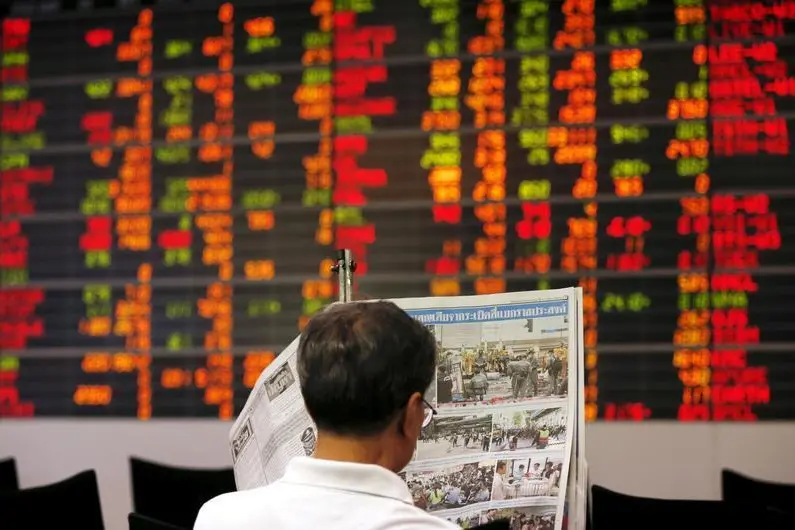PHOTO
LONDON - Major stock markets were stuck in limbo on Tuesday as a surprise interest rate hike in Australia gave investors a reminder that the fight against high inflation rages on and global borrowing costs are yet to max out.
Wall Street, where the S&P 500 touched a near 10-month high on Monday, was expected to start fractionally lower, while 0.2%-0.3% dips in London, Paris and Frankfurt kept Europe pegged back.
Government bond yields - a proxy for borrowing rates - eased slightly after a European Central Bank (ECB) survey showed euro zone consumers had lowered their inflation expectations.
British retail sales growth also slowed to a seven-month low as soaring food prices prompted shoppers to rein in spending on non-essential items, but that contrasted with the overnight action from down under.
Australia's central bank delivered a surprise quarter-point hike to 4.1% - an 11-year high - and warned that further increases might be required to ensure inflation is brought back under control.
That pushed up the Aussie dollar and set the bar for a slew of key rate decisions elsewhere in the next couple of weeks, starting with Canada on Wednesday, which could also squeeze in another hike, TD Securities Senior Global Strategist James Rossiter said.
"The last few months have been completely distracted by the banking crises and the U.S. debt ceiling issue, but now we are very much back to the macro dynamics driving central banks and where their terminal rates are going to be."
"The issue is that inflation is just not playing as nice as everybody expected and central banks are really struggling with this," he added.
The U.S. Federal Reserve, the ECB and Bank of Japan all hold meetings next week.
Data on Monday showing the U.S. services sector barely grew in May has left markets pricing in an 82% chance of the Fed taking a pause in its rapid hiking cycle, a sharp jump from a 36% chance a week earlier, according to the CME FedWatch tool.
The dollar index, which measures the greenback against the main global currencies, still managed to nudge higher, though.
But it was the 0.7% jump in the Aussie dollar after the overnight surprise from the Reserve Bank of Australia that led the market.
The euro slipped 0.3% to back under $1.07, while the yen weakened 0.10% to 139.69 per dollar and sterling fetched $1.2397, down 0.3% on the day.
CRYPTO CRACKDOWN
There was more bad news in the cryptocurrency markets, as the U.S. Securities and Exchange Commission sued the largest U.S. crypto asset trading platform, Coinbase, a day after also suing crypto exchange Binance.
That saw bitcoin drop another 1.5% to $25,610 and marked another blow to the cryptocurrency, which has been blighted by a number of high-profile scandals and collapses over the last couple of years.
Data firm Nansen estimated that around $790 million had been pulled from Binance and its U.S. affiliate in the last 24 hours.
Among commodities, oil prices gave up most of the gains they had made on Monday after the world's top exporter, Saudi Arabia, said it would further cut output. Brent and U.S. crude dropped about 2% to $75.35 and $70.58, respectively.
Those falls added to the dip in benchmark bond yields, although for most investors the question remains squarely where do interest rates go from here, especially for the Fed.
A pause before more hikes as a result of sticky inflation, said Mike Kelly, head of multi-asset at PineBridge Investments.
"We're actually still positioned on the notion that you can get a mild U.S. recession without pulling the world into recession," he said.
A string of economic data along with last week's dovish rhetoric from Fed officials has emboldened bets that the Fed will likely refrain from lifting rates at its June 13-14 meeting.
Data on Friday showed U.S. non-farm payrolls rose by 339,000 in May, but a surge in the unemployment rate to a seven-month high of 3.7% suggested an easing in labour market conditions.
(Reporting by Nell Mackenzie and Marc Jones; Editing by Dhara Ranasinghe and Mark Potter)




















